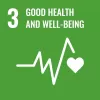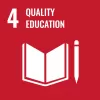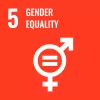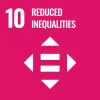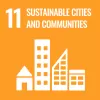Poland
participants
Theoretically and practically teach Erasmus students how to use inclusive language around transgender/genderfluid/non-binary people.
The event consisted of two parts: a lecture and an exercise. A member of our organisation led the lecture with a presentation regarding three main kinds of inclusive language - 'they/them' pronouns, neo-pronouns and what we call 'persona' - the use of words that indicate a human or a person without labelling the gender. During the presentation, participants discussed many aspects regarding the use of this language, especially when neo-pronouns became the main topic. Before moving to the next part of the presentation, the speaker requested three Erasmus students to pick or create their own neo-pronouns - these were crucial for the later exercise. After the presentation, the exercise began, during which the participants had to pair up and converse with each other using their knowledge. They were also tasked to talk about the people who chose the neo-pronouns and then imply them in the conversation.
